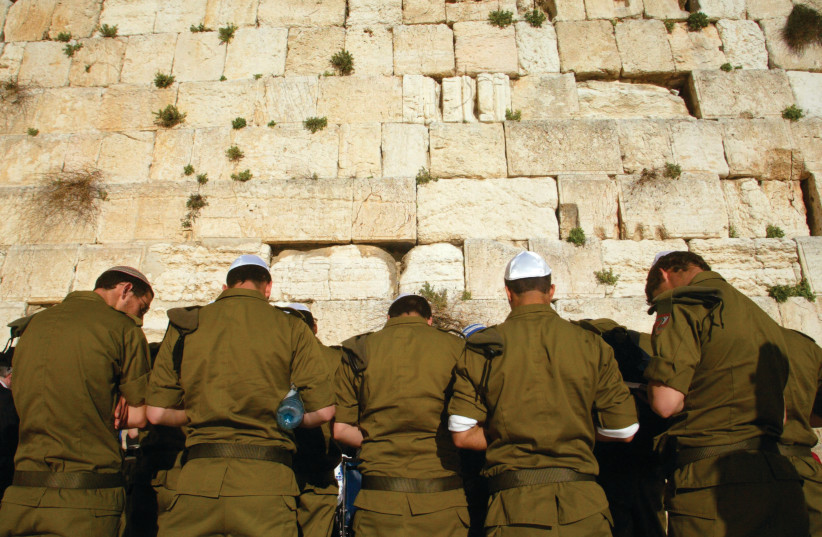Soldiers will see a “significant pay jump” when they are paid this week, Prime Minister Naftali Bennett said Sunday.
After remaining the same for more than five years, frontline combat soldiers will receive about NIS 2,400 per month, up from NIS 1,600. Troops in combat-support units will receive NIS 1,200 per month, up from NIS 800.
“This is the little bit that can be done for those who do so much for us,” Bennett said.
Soldiers are not paid a “salary” but receive “subsistence costs,” which are meant to provide them with funds while on leave.
Last November, the Defense and Finance ministries said they would raise conscripted soldiers’ pay by 50% following a major public backlash against the military after the pensions of retired career officers got a major boost while the salaries of troops remained stagnant for more than five years.

There has also been a decrease in motivation by Israelis to serve in the IDF, especially in combat units. Troops have uploaded complaints to social media with images of inedible food, lack of transportation to bases and long lines to visit doctors on their base.
“There are very large segments of the population who simply do not serve… but those who do serve should receive from us, as a society, all the priority and gratitude that there is,” Bennett said.
“Without each and every one of you who rode the bus this morning to serve another week at base, we would not be here,” he said. “That is the truth.”
During the third and final year of service, combat soldiers will receive NIS 3,048 per month, combat-support troops will receive NIS 1,793 per month, and those in administrative positions will receive NIS 1,235 per month.
A series of measures in the military have come into effect following the approval of the state budget, including Northern Shield, which aims to improve the infrastructure of shelters in the North; the One Soul program to help veterans with PTSD; and From Uniform to Studies.
The total cost of the increase will be NIS 900 million, which will be financed from the Defense and Finance ministries’ budgets.
“The people’s army is the guarantee for Israel’s security, and we must cherish the soldiers who serve in it,” IDF Chief of Staff Lt.-Gen. Aviv Kohavi said when the measures were approved. “Soldiers are the source of the IDF’s power. Every soldier is a valuable asset, and caring for them is our obligation.”
Despite the raise in compensation, it is less than the minimum wage of NIS 5,300.
